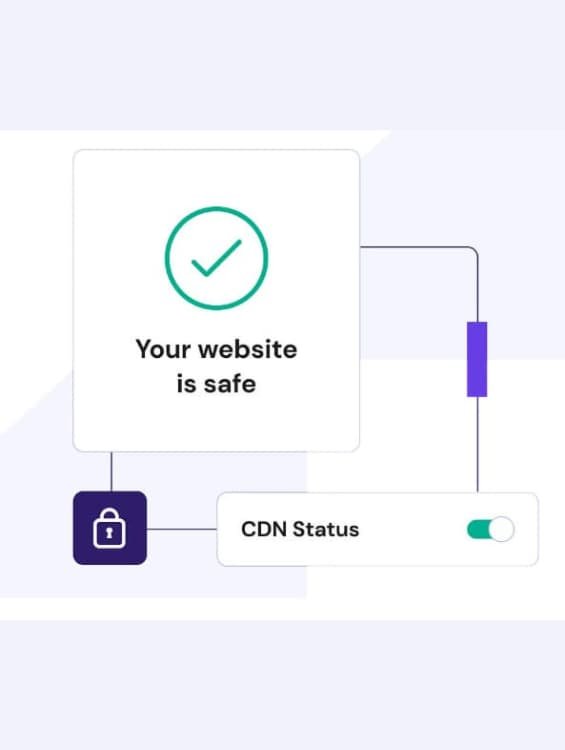- Web hosting provides the space on a server and the tools needed to store your website’s files, making your site reachable online.
- Web hosting comes in several types, including shared, VPS, dedicated, cloud, bare metal, and WordPress hosting. You can pick the option that best fits your website’s needs.
- When choosing a web hosting provider, pay attention to factors like storage capacity, bandwidth, uptime reliability, security features, scalability options, and the quality of customer support.
- Compare various web hosting plans and read reviews to identify the best provider for your business or client needs.
Know What Your Website Needs
Before choosing the best web hosting, clearly identify the needs of your website. Consider the type of content you will publish, the amount of traffic you expect, and any special features your site requires. This helps in selecting a hosting plan that offers the right balance of storage, speed, and support. Understanding your website’s demands allows you to avoid overpaying for services you don’t need or facing limitations that could slow down your site. Whether you run a blog, an online store, or a portfolio, matching your hosting to your site’s goals sets you up for success.
Build your site faster with AI
- Go live in less time with the AI powered Hostinger Blog Theme.
- Write original, search friendly content with the AI Assistant plugin.
- Save time and let AI choose relevant images for your posts.

Consider Your Website Building Options
- When starting with website building, choosing the right web hosting service is key. Your web hosting affects your site’s speed, reliability, and security. Picking the best web hosting can improve user experience and help your site perform well in search results.
- There are many options available, from shared hosting to dedicated servers. Shared hosting is affordable and good for small sites, while dedicated hosting offers more control and power for larger projects. Some hosts include website building tools that make setting up your site easier, especially if you don’t have coding experience.
- Think about the features you need, such as storage space, customer support, and uptime guarantees. A solid web hosting provider with easy website building options can save you time and headaches.
- In the end, selecting the right combination of web hosting and website building tools sets the foundation for a smooth running site that meets your needs.
Check Available Server Locations
When choosing the best web hosting for your website building project, it’s important to look at the locations of the servers offered. Server locations affect your site’s speed and performance, especially for visitors in different regions. Select a host that has servers close to your target audience to reduce loading times and improve user experience. Knowing where servers are located also helps with data regulations and backup options. Taking time to review these details can make a big difference in how smoothly your website runs.
Look at the Level of Support
- When choosing the best web hosting for your website building projects, the support offered by the provider is a key factor. Reliable customer service can save you time and frustration. If your website runs into problems, you want quick access to knowledgeable assistance.
- Check if the host provides 24/7 support through multiple channels like chat, phone, or email. Some companies also offer helpful resources such as tutorials, a knowledge base, or community forums. These extras can be a big help when you run into common issues.
- Good support means fewer headaches while setting up and managing your site. Before making a decision, read reviews to see how the company handles customer questions and technical problems. A web host that stands behind its service makes building and maintaining your website much easier.
Round-the-clock support for your website’s success
Get expert help anytime through live chat or email. Hostinger reply in minutes, not hours, and fix issues fast. friendly support. Choose Hostinger for wordpress hosting. It is the best hosting for website owners who need the best hosting for urjent support.

Consider Backup Solutions
When working with the best web hosting services for your website building projects, it’s important to review the backup options available. Reliable backups protect your site from data loss, server issues, or other unexpected problems. Check if the hosting provider offers automatic backups and how often they run. Look for easy restoration processes, so you can quickly recover your website if needed. Having strong backup plans in place helps keep your content safe and minimizes downtime, which is essential for maintaining a professional online presence.

Fast and secured web Hosting
Your website security comes first
- Free SSL certificates protect your customers’ sensitive data.
- Our malware scanner finds and removes harmful files.
- Strong privacy features keep your personal information safe.
- Block unwanted traffic by IP or country, included with Hostinger CDN.
Conclusion
Choosing the best web hosting plays a key role in successful website building. A reliable hosting service keeps your site running smoothly, improves loading speeds, and offers better security. By picking the right host, you set a strong foundation for your site’s growth and performance. Whether you are a blogger or a web developer, investing time in selecting the best web hosting can save you headaches later and help your website reach its full potential. Good hosting makes website building easier and keeps your online presence steady and reliable.




